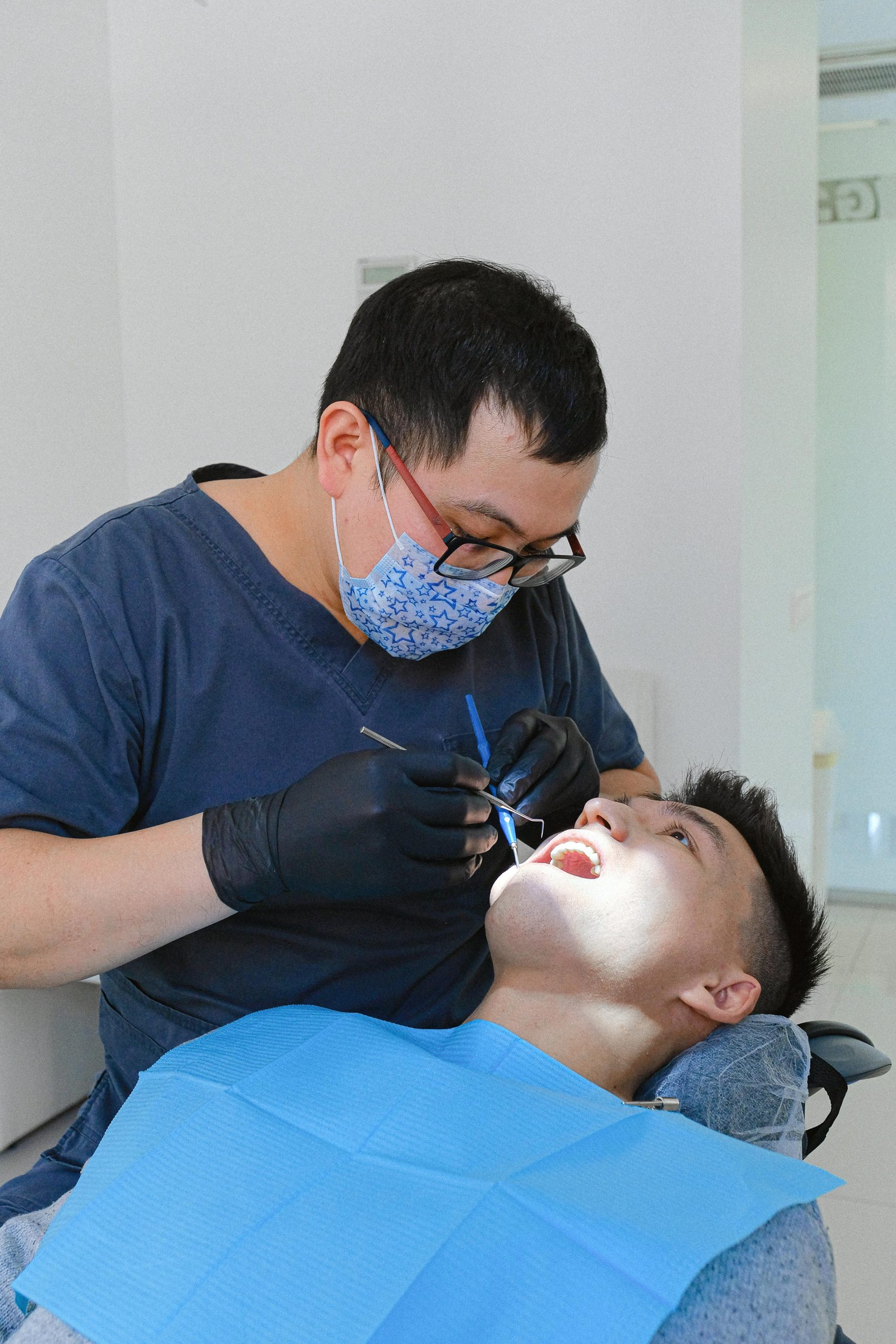Table of Contents
- 1 I. Introduction
- 2 II. The Link Between Oral Health and Overall Health
- 3 III. Prevention of Dental Issues through Regular Checkups
- 4 IV. Health Benefits Beyond the Mouth
- 5 V. The Role of Regular Checkups in Children’s Oral Health
- 6 VI. The Consequences of Neglecting Dental Checkups
- 7 VII. Frequency of Dental Checkups and What to Expect
- 8 VIII. Conclusion
![]()
Oral health is often overlooked in the pursuit of overall well-being, yet it plays a crucial role in maintaining a healthy body. Regular dental checkups are essential not only for preventing oral issues like cavities and gum disease but also for ensuring that systemic health is safeguarded. The connection between oral health and overall health is profound, and routine dental visits can help prevent complications that affect both the mouth and the entire body. This article explores the importance of regular dental checkups and how they contribute to better health outcomes.
I. Introduction
Overview of Dental Health
Dental health refers to the condition of your teeth, gums, and mouth, and it has a significant impact on your general well-being. Poor oral health can lead to a variety of issues, from bad breath to tooth loss, and it has also been linked to systemic conditions like heart disease and diabetes. Regular dental checkups are designed to detect problems early, provide preventive care, and address issues before they become more serious.
Prevalence of Oral Health Issues
Dental problems are widespread, with studies showing that a large percentage of people experience conditions like cavities, gum disease, and tooth decay. According to the World Health Organization, dental caries (cavities) affect nearly 60-90% of school-age children and nearly 100% of adults globally. Despite these statistics, many individuals delay or skip dental checkups, unaware of the potential long-term consequences of neglecting oral care.
Purpose of the Article
This article highlights the importance of regular dental checkups, not only in preventing and detecting dental issues but also in protecting your overall health. It will explore the direct links between oral health and systemic conditions, the benefits of early detection, and the long-term health advantages of regular visits to the dentist.
II. The Link Between Oral Health and Overall Health
Bacterial Influence on the Body
Oral bacteria, if left unchecked, can enter the bloodstream through the gums, leading to infections and inflammation in other parts of the body. The mouth can serve as a gateway for harmful bacteria to spread, affecting organs like the heart and lungs. Dental checkups help identify infections early, preventing the spread of bacteria and reducing the risk of complications.
Impact on Systemic Diseases
Poor oral health has been linked to a variety of systemic conditions. For instance, gum disease has been associated with an increased risk of heart disease, stroke, and respiratory infections. The inflammation caused by gum disease can contribute to arterial plaque buildup, which increases the risk of cardiovascular problems. Moreover, untreated oral infections can exacerbate chronic conditions like diabetes, as high blood sugar levels can worsen periodontal disease.
Pregnancy and Oral Health
Pregnant women face unique challenges when it comes to oral health. Gum disease has been linked to an increased risk of preterm birth and low birth weight. Regular dental checkups during pregnancy help ensure that expectant mothers maintain good oral hygiene, preventing complications that could affect both maternal and fetal health.
III. Prevention of Dental Issues through Regular Checkups
Early Detection of Cavities and Gum Disease
One of the most significant benefits of dental checkups is the early detection of issues like cavities and gum disease. During routine exams, dentists can spot early signs of tooth decay and gum inflammation, providing the opportunity to treat these problems before they become more severe. Early treatment can prevent the need for costly procedures like root canals or tooth extractions and help maintain healthy teeth and gums.
Professional Cleanings and Plaque Removal
While brushing and flossing at home are crucial for oral health, they can’t remove all plaque and tartar. Professional cleanings during dental checkups remove plaque buildup that can’t be eliminated with a toothbrush, helping to prevent gingivitis and more severe gum disease. Regular cleanings also ensure that your teeth remain free from harmful bacteria and other oral health issues.
Oral Cancer Screenings
Oral cancer is a serious condition that often goes undetected until it reaches an advanced stage. During routine dental checkups, dentists conduct screenings for signs of oral cancer, which can include unusual growths or sores in the mouth. Early detection of oral cancer significantly increases the chances of successful treatment and improves survival rates.
IV. Health Benefits Beyond the Mouth
Reduction in Risk of Heart Disease
Maintaining good oral health can have a direct impact on heart health. Gum disease, in particular, is linked to a higher risk of cardiovascular conditions such as heart attacks and strokes. The bacteria from infected gums can travel through the bloodstream, causing inflammation in the blood vessels and leading to the buildup of arterial plaque. Regular dental checkups help prevent gum disease, thus lowering the risk of heart disease and other cardiovascular problems.
Improved Digestion and Nutrition
Your teeth play a crucial role in breaking down food, which is the first step in the digestive process. If you have missing or damaged teeth, it can become difficult to chew food properly, potentially leading to poor digestion and nutritional deficiencies. Dental checkups can address issues like missing teeth or ill-fitting dentures, allowing for better chewing and, consequently, improved digestion and nutrient absorption.
Improved Mental Health
Oral health is closely tied to mental health. Poor dental health, including missing teeth or gum disease, can lead to embarrassment and a loss of self-esteem. This can cause stress, anxiety, and even depression, affecting a person’s quality of life. Regular dental checkups help ensure a healthy smile, boosting confidence and promoting positive mental health.
V. The Role of Regular Checkups in Children’s Oral Health
Establishing Healthy Habits Early
Regular dental checkups should start early in childhood, helping children establish healthy oral hygiene habits that can last a lifetime. Pediatric dentists guide both parents and children on proper brushing techniques, dietary choices, and the importance of regular dental visits. Early visits also help familiarize children with the dental environment, making them less anxious about future checkups.
Preventing Childhood Tooth Decay
Childhood tooth decay is a common issue, but it is preventable with regular dental visits. Dentists can detect early signs of cavities and provide fluoride treatments or sealants to protect teeth from decay. Regular checkups also allow for the identification of habits like thumb sucking or teeth grinding, which can lead to long-term dental problems if left unaddressed.
VI. The Consequences of Neglecting Dental Checkups
Development of Severe Dental Problems
When dental checkups are neglected, small issues can quickly develop into more severe and painful conditions. For example, a cavity left untreated can progress into an infection, requiring expensive and invasive treatments like root canals or extractions. Gum disease can advance from gingivitis to periodontitis, leading to tooth loss and other complications. Regular checkups help prevent these issues from escalating.
Financial Impact
Neglecting dental care can also lead to significant financial costs. Preventive care, such as regular checkups and cleanings, is far less expensive than the costs associated with emergency dental procedures or surgeries. Investing in routine dental visits can help you save money in the long term by avoiding costly treatments for advanced dental issues.
VII. Frequency of Dental Checkups and What to Expect
Recommended Frequency for Dental Visits
Most dental professionals recommend visiting the dentist for a checkup and cleaning every six months. However, the frequency may vary depending on individual needs, such as age, medical conditions, and oral health status. Some individuals, such as those with gum disease or a history of cavities, may need more frequent visits.
What Happens During a Checkup
During a routine dental checkup, your dentist will examine your teeth and gums for signs of cavities, gum disease, and other oral health issues. X-rays may be taken to detect problems not visible to the naked eye. A dental hygienist will typically perform a cleaning to remove plaque and tartar buildup. In some cases, your dentist may also conduct an oral cancer screening.
VIII. Conclusion
Summary of Key Points
Regular dental checkups are essential for maintaining both oral and overall health. By detecting issues early, preventing dental problems, and identifying connections between oral health and systemic conditions, dental visits can improve quality of life and reduce the risk of serious health issues. From reducing the risk of heart disease to improving mental health, the benefits of dental checkups extend far beyond the mouth.
Share This





Be the first to comment